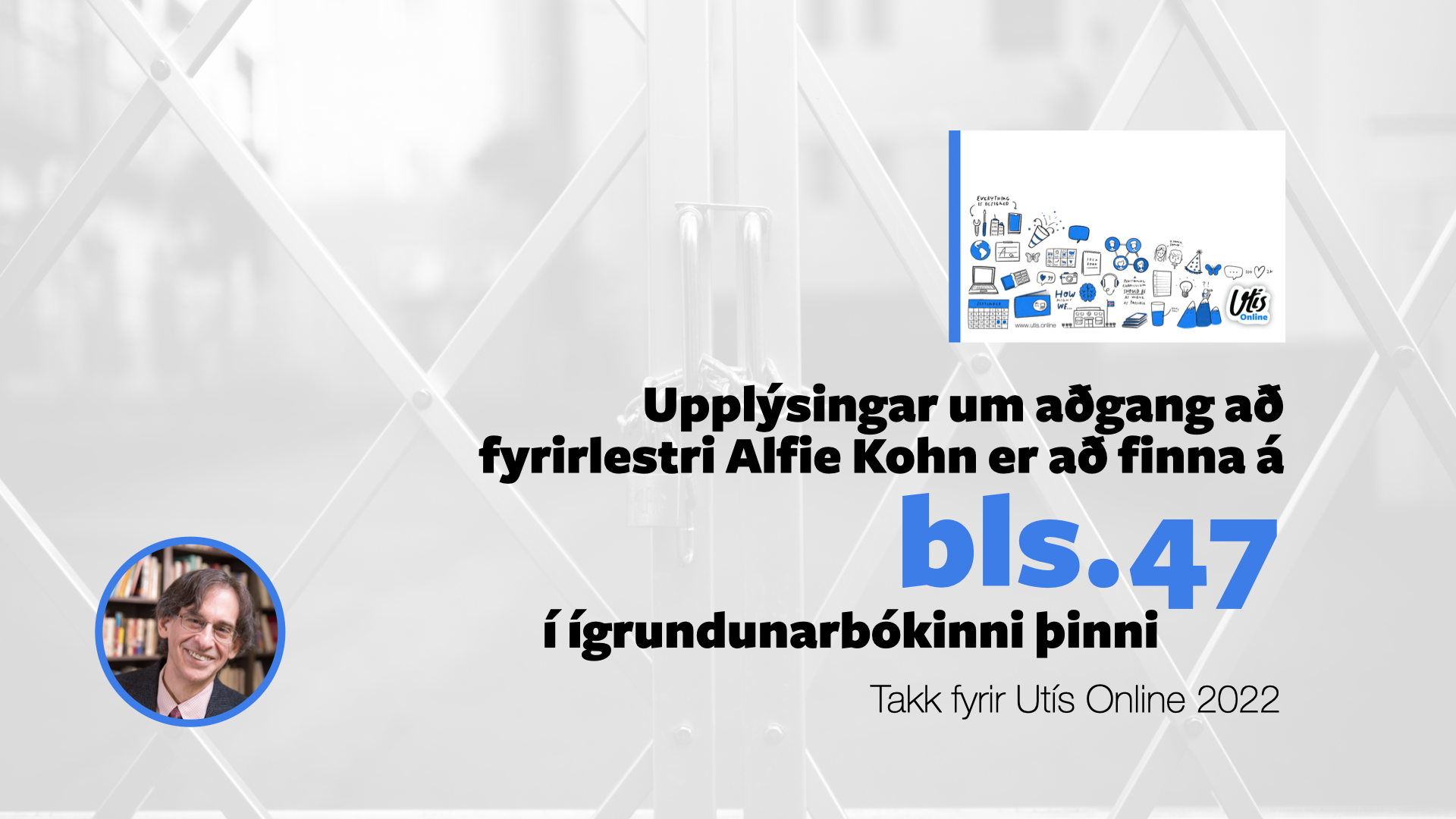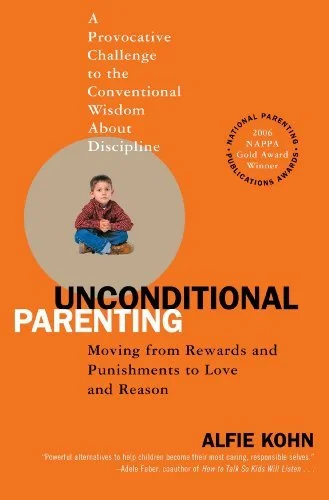
Alfie Kohn
The Trouble with Grades
Rannsóknir sýna að einkunnir dragi úr áhuga nemenda á námi, þau eru líkleg til að velja sér einfaldasta verkefnið og hugsa skemur um viðfangsefni heldur en ella.
Þegar nemendum er látið trúa því að þau eigi að einbeita sér að því hve vel þau standa sig í prófun og á einkunnum í skólanum, er líklegt að þau hafi minni áhuga á því hvað þau eru að gera í skólanum.
Alfie Kohn býður okkur með í ferðalagið að hætta að gefa einkunnir, og um leið gera allt sem við getum til að nemendur hugsi ekkert um þær.
“Kids learn to make good decisions by making decisions, not by following directions.”
— Alfie Kohn
Spurningar og svör frá Sli.Do
Q1: How can we guide directors of education, parents and students into believing in the course of learning rather than just the outcome?
I’m not sure whether, by “believing in,” you mean “accepting as a trustworthy indicator” or “viewing as important.” Either way, I’d want to emphasize that some outcomes are much more meaningful than others. For that matter, courses of learning, too, vary significantly in their value. I like the idea of helping students to immerse themselves in the process of learning rather than just seeing it as pointing to a product. (And it’s easier to help them do that if the adults aren’t pressuring them about outcomes.) But I think we need to move toward more student-centered, discovery-based courses of learning AND toward more authentic goals (in place of test scores and grades).
Q2: Many parents seem to be most interested in grades. How do we deal with them?
By asking what their long-term goals are for their children (as I mentioned at the beginning of my talk) and then pointing them to research showing that grades actively undermine some of the most commonly cited goals, including love of learning and depth of thinking. (If any of my books or articles might be useful, feel free to share them with parents.)
Q3: Are there researches which tells us that students who were learning in schools, 10-20 years ago, were less caring and show less empathy than students today?
I’m aware of only one study that claimed to show a reduction in empathy over time in young people, but the difference wasn’t impressive, the time periods being compared don’t correspond to the ones you’re asking about, and it hasn’t been replicated as far as I know. Even if a study did show that, it would be very difficult to know what to attribute the change to - or whether it was just a transient blip (i.e., statistical noise).
Hver er Alfie Kohn?
Alfie Kohn er stórkostlegur gagnrýnandi á kerfið og höfundur 14 bóka, þar á meðal PUNISHED BY REWARDS, THE SCHOOLS OUR CHILDREN DESERVE, og UNCONDITIONAL PARENTING.
Honum var lýst af Time Magazine sem helsti gagnrýnandi Bandaríkjanna á rörsýn menntakerfisins á einkunnir og próf. Gagnrýni hans á samkeppni og svokölluð verðlaun hafa hjálpað við að móta það hvernig fólk um allan heim hugsar um menntun. Alfie Kohn hefur komið fram í hundruðum útvarps-og sjónvarpsþátta þar sem hann talar um menntun, m.a. ‘The Today Show’ og tvisvar mætti hann til Opruh.
Alfie býr í Boston, skrifar bækur og hefur unun af því að flytja og semja ‘grín’lög í sínum frítíma.
Hlekkir úr fyrirlestri:
Beware of the Standards, Not Just the Tests: www.alfiekohn.org/article/beware-standards-just-tests/



